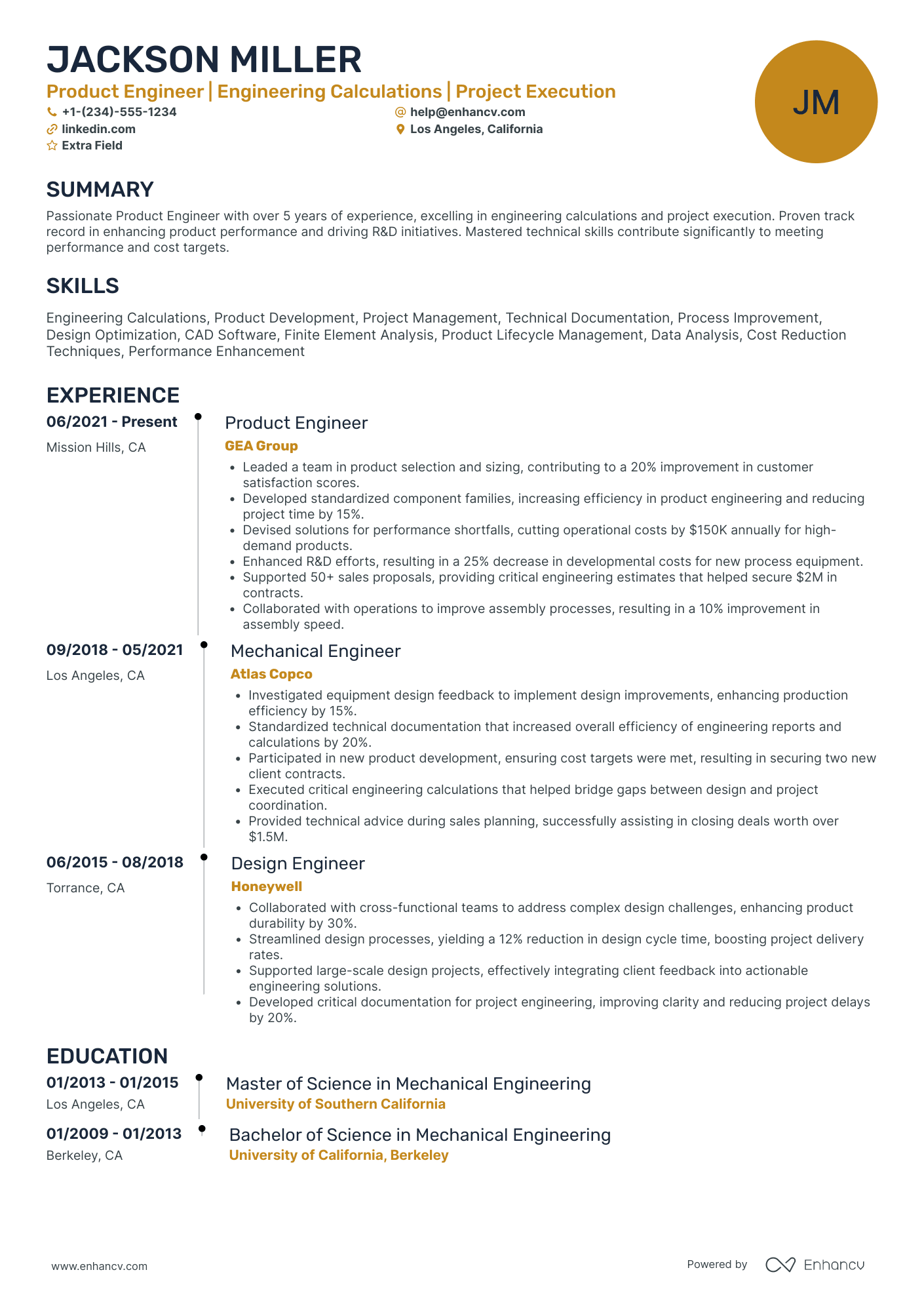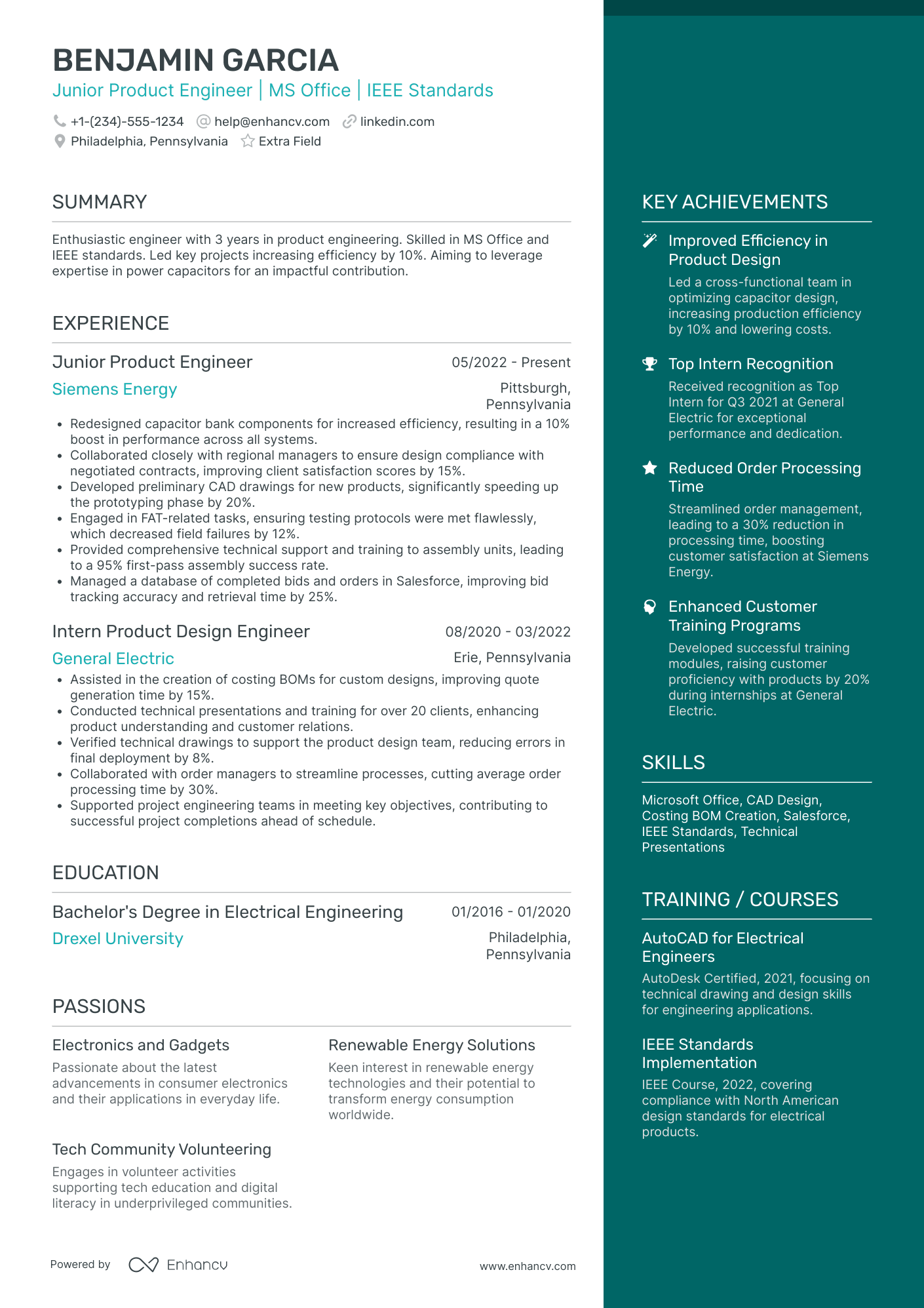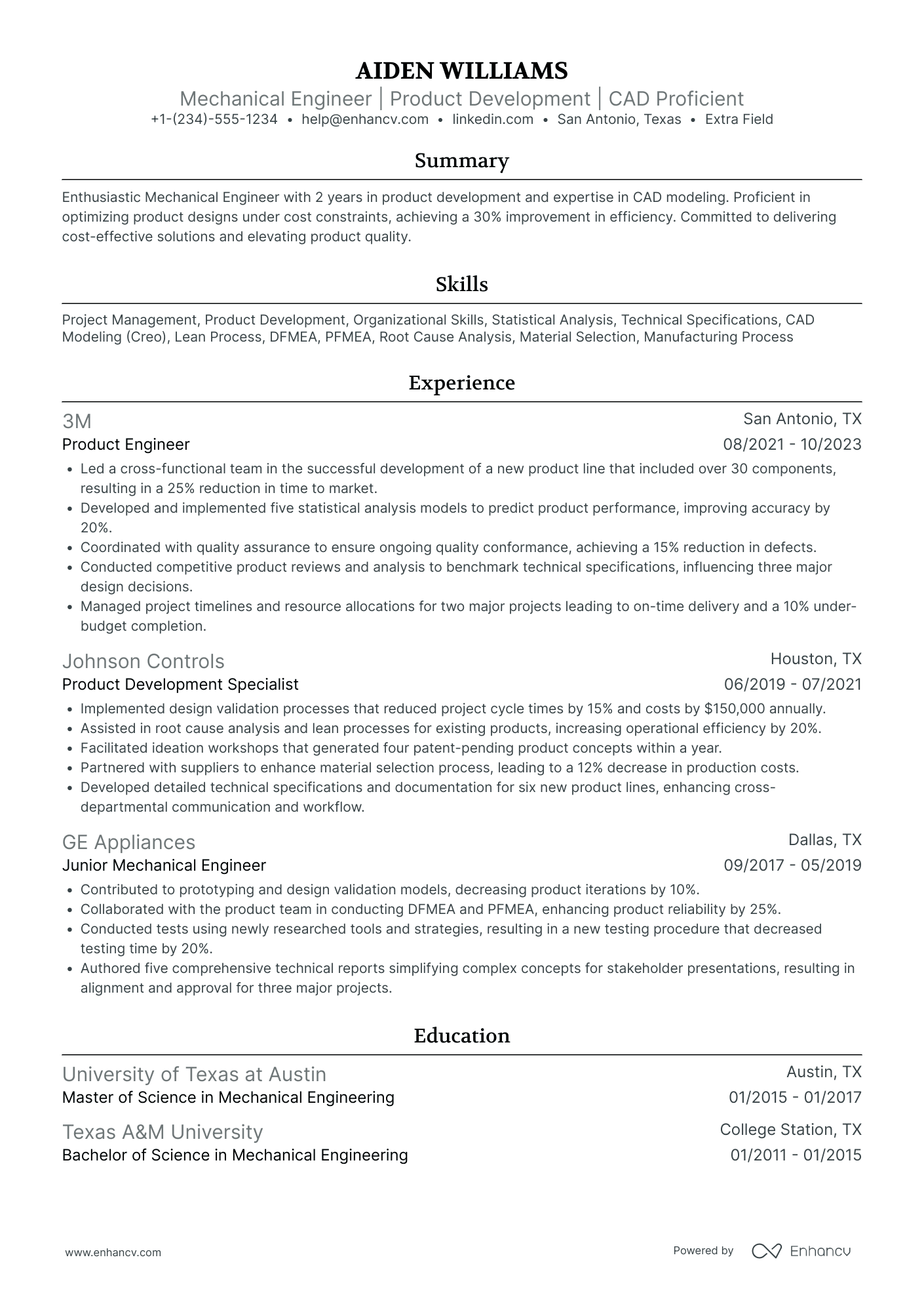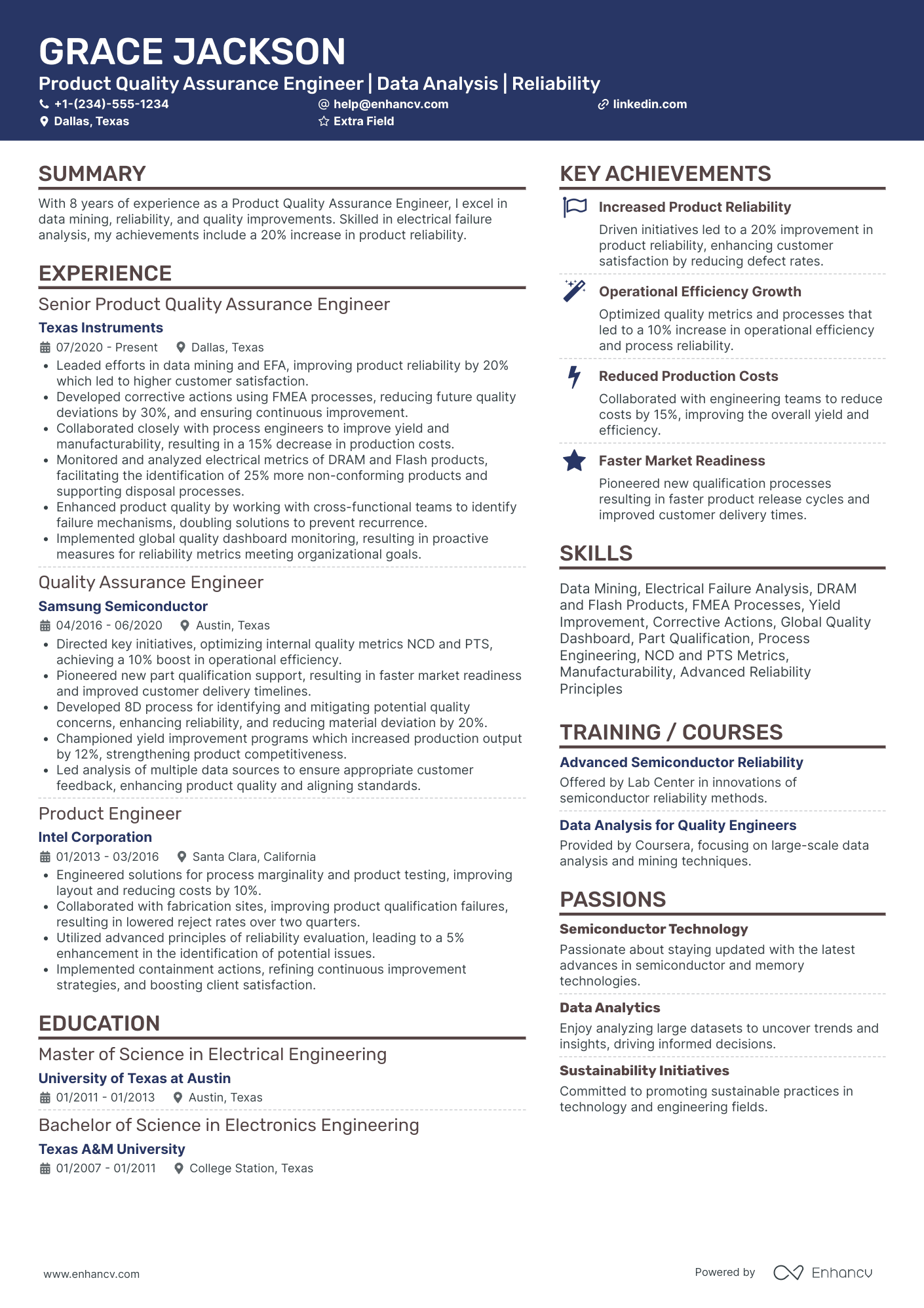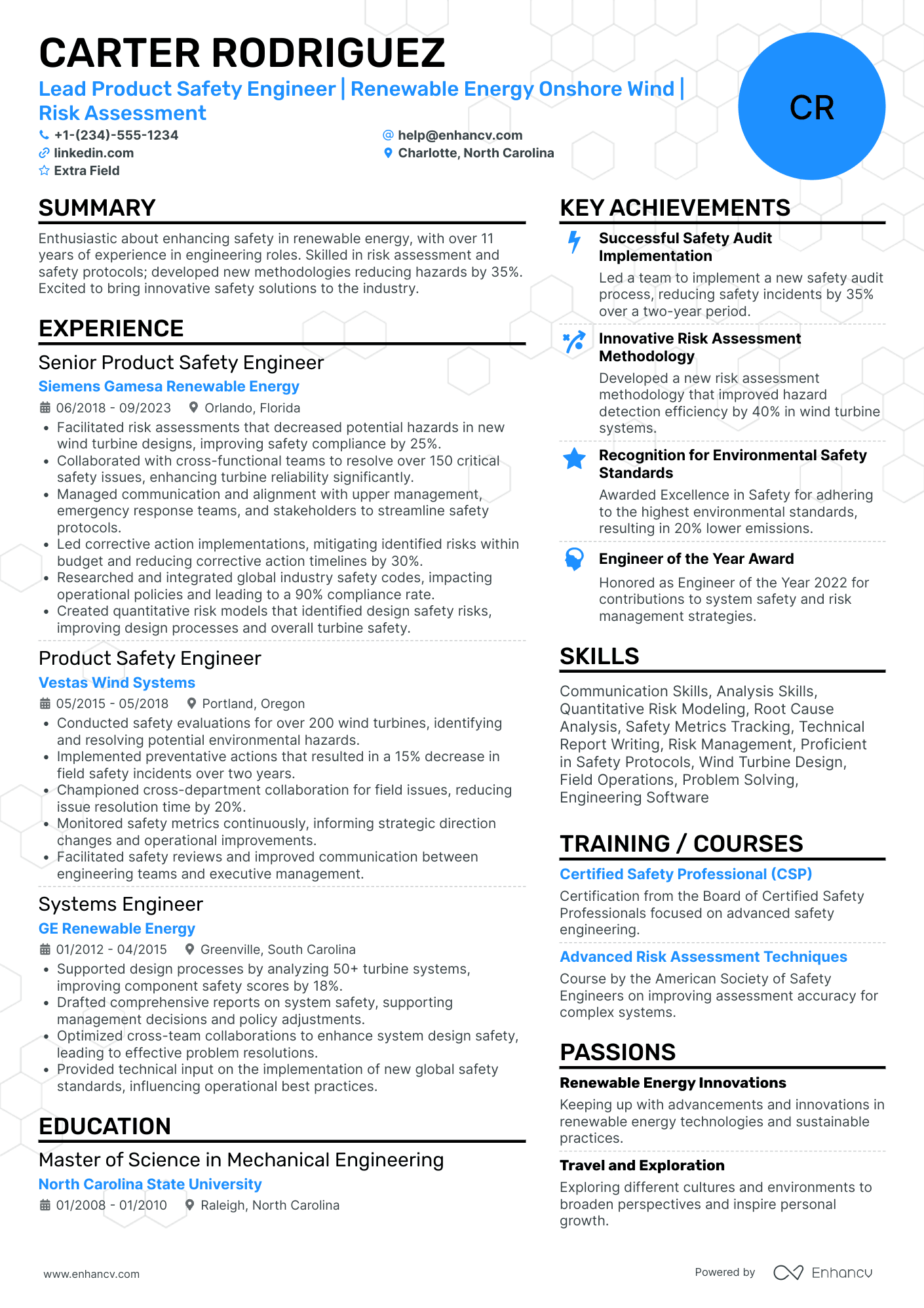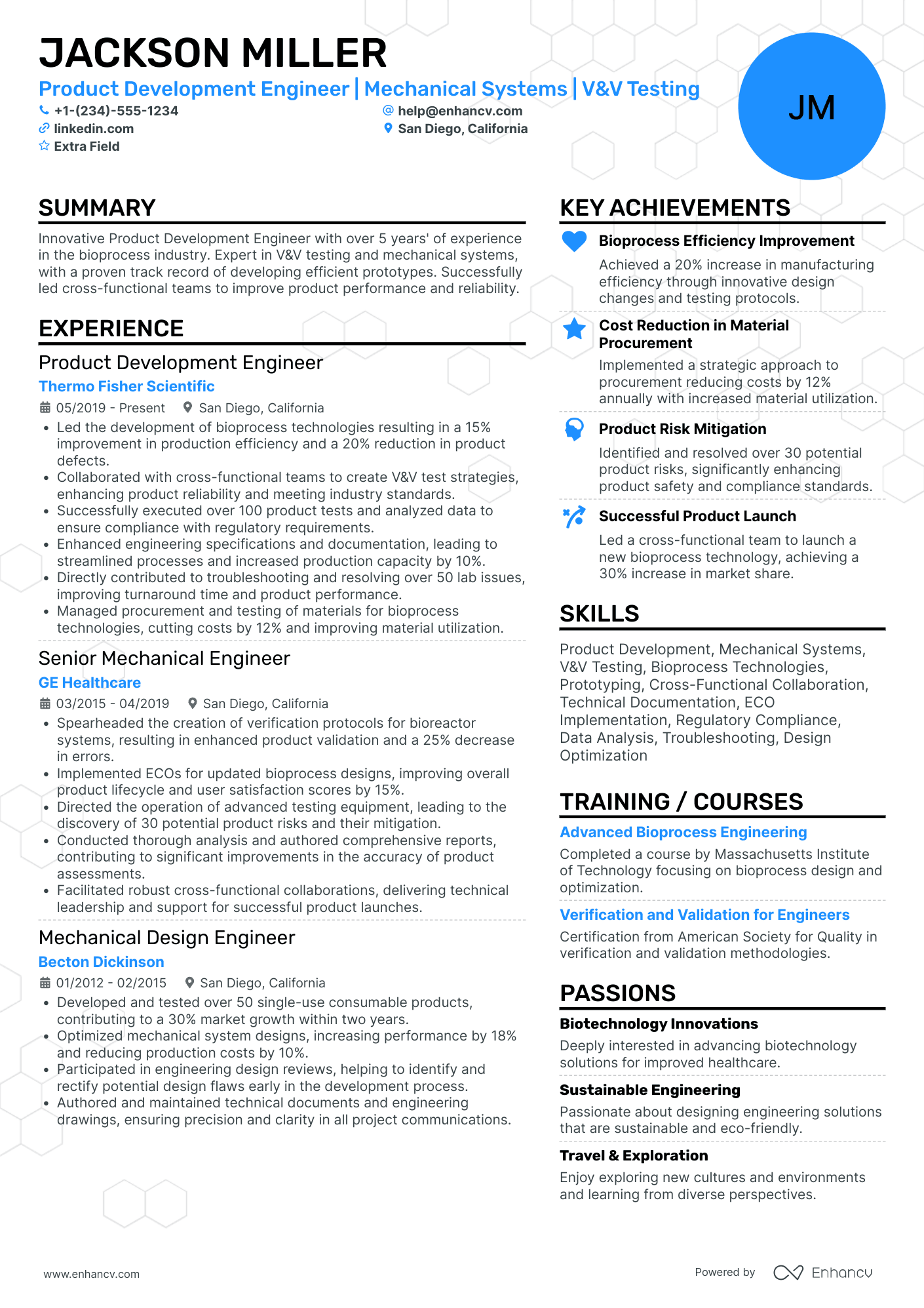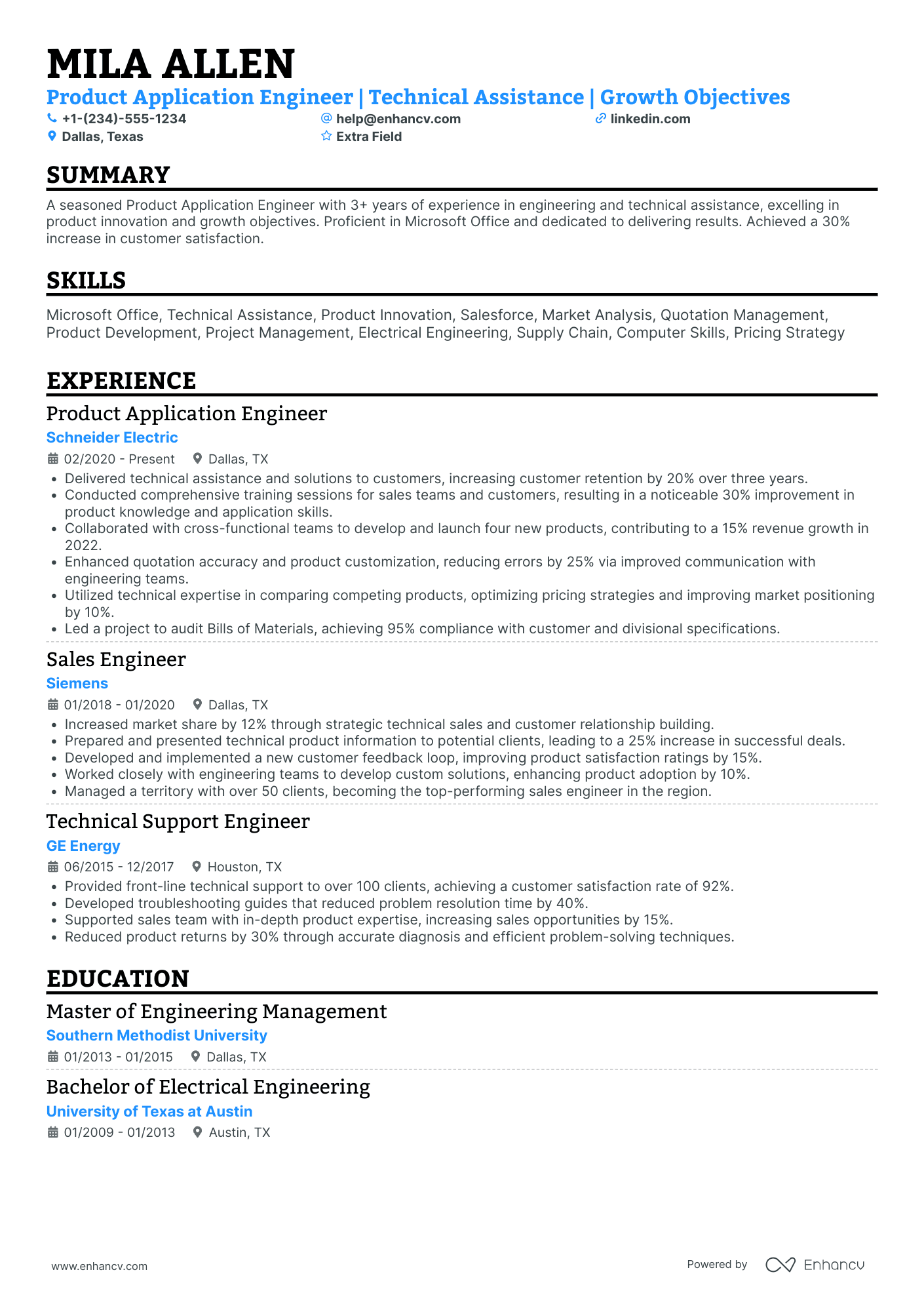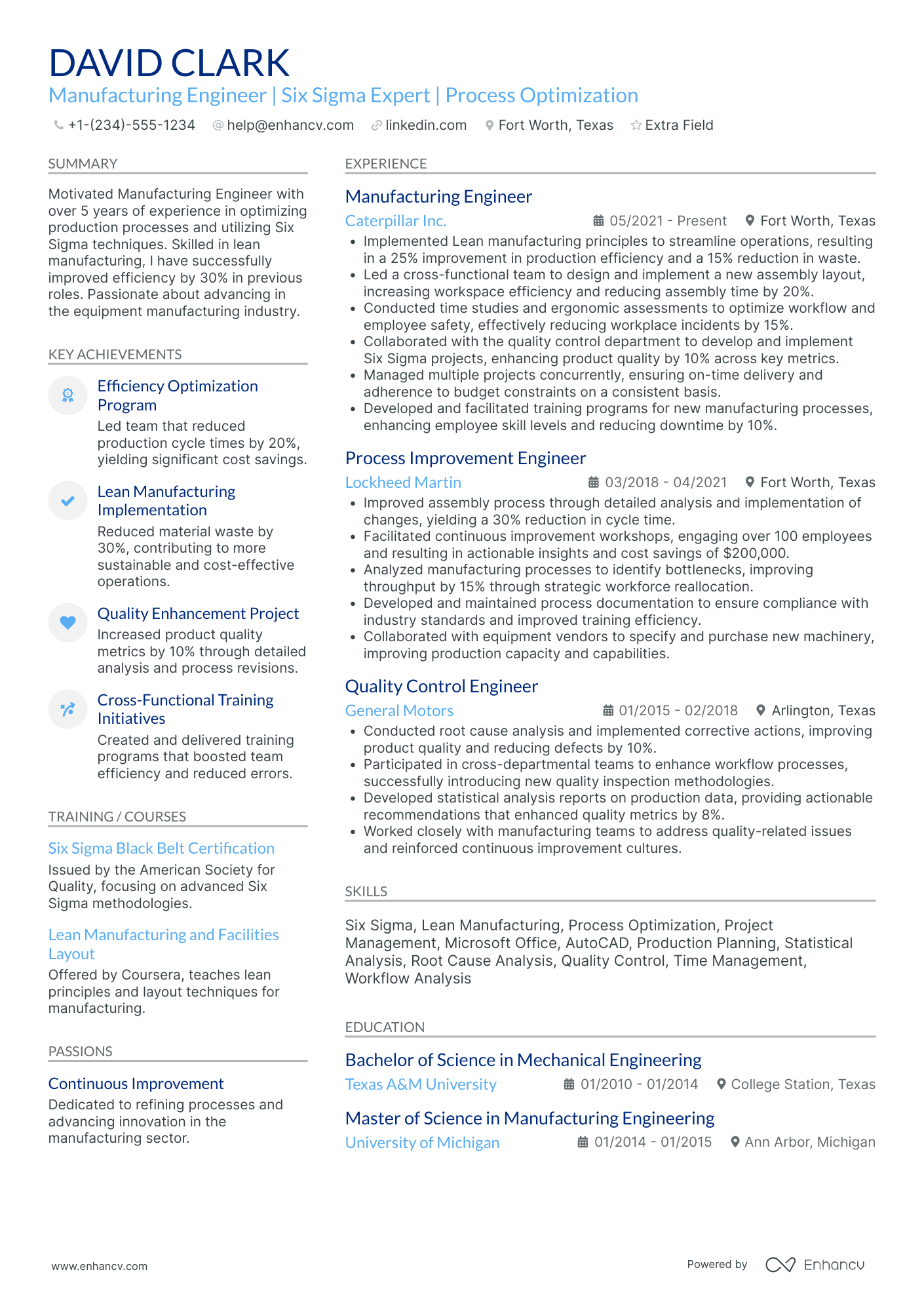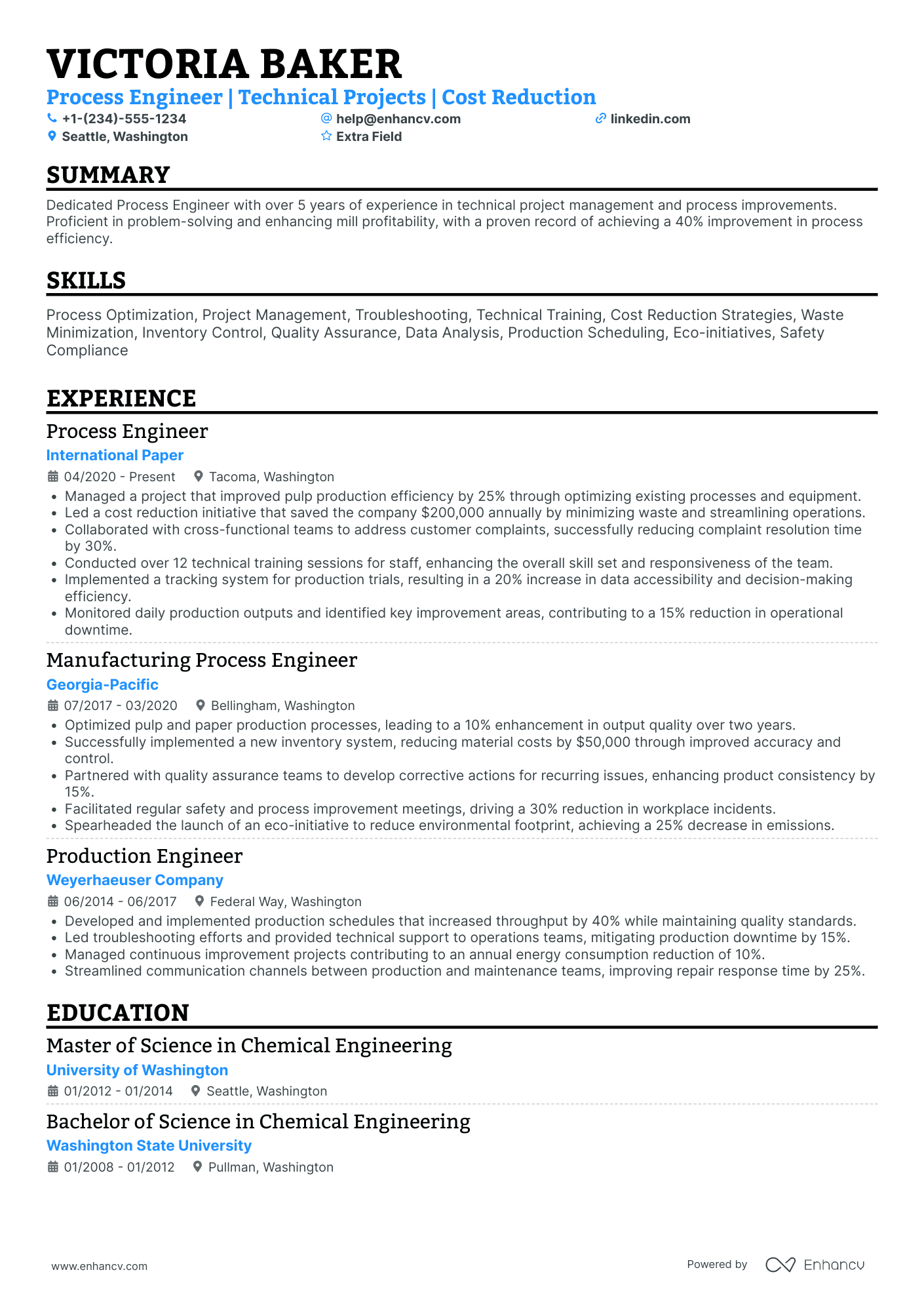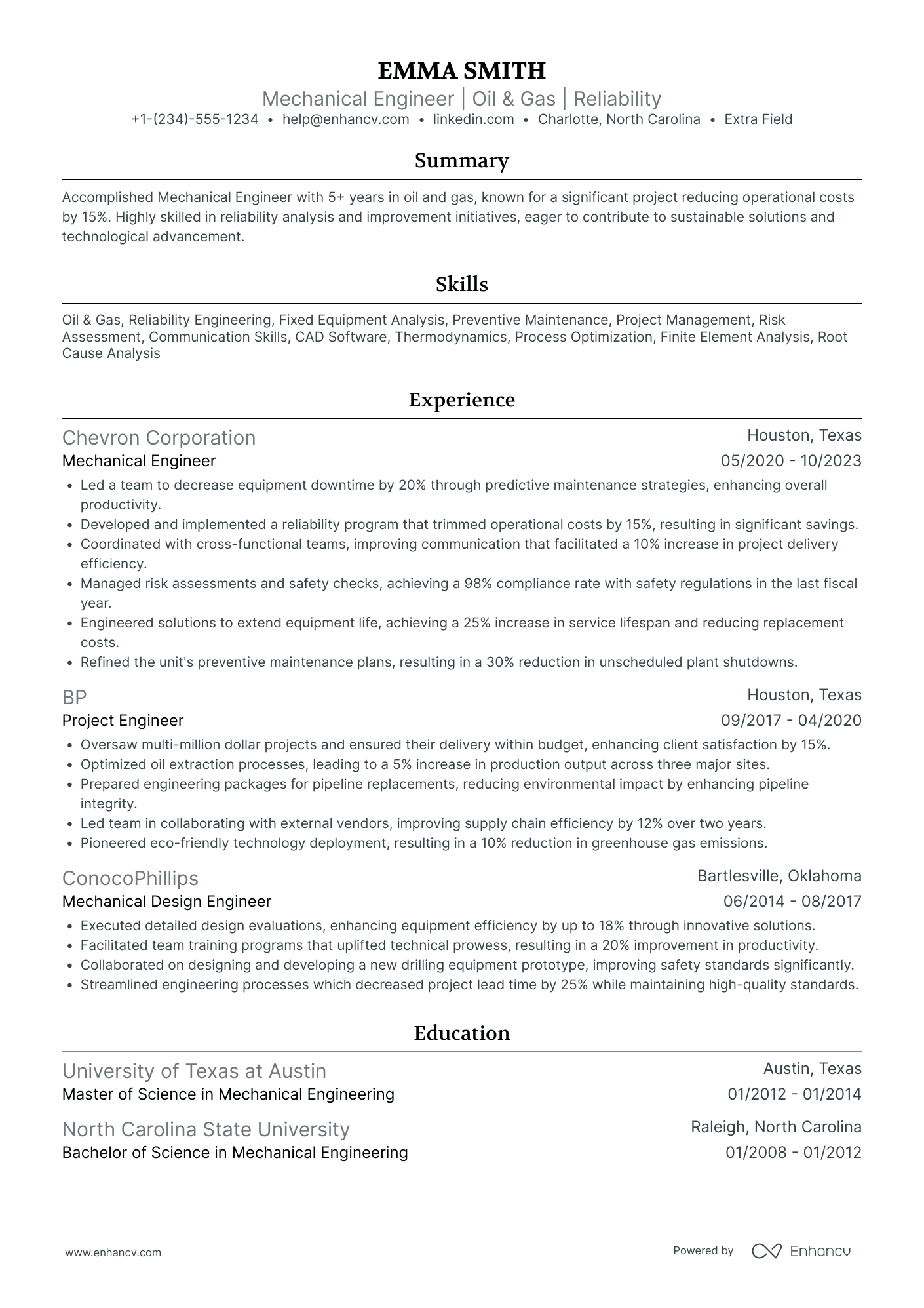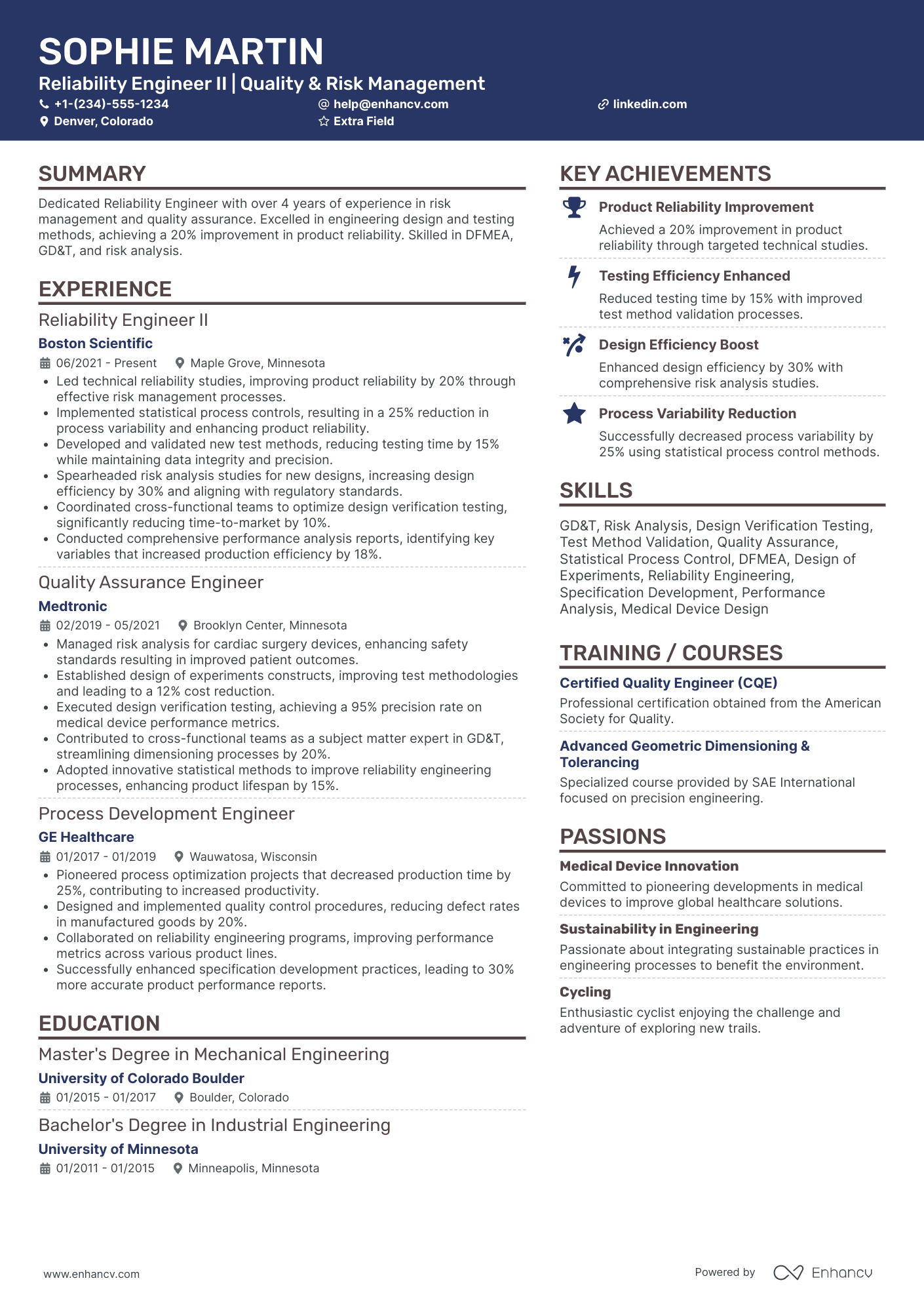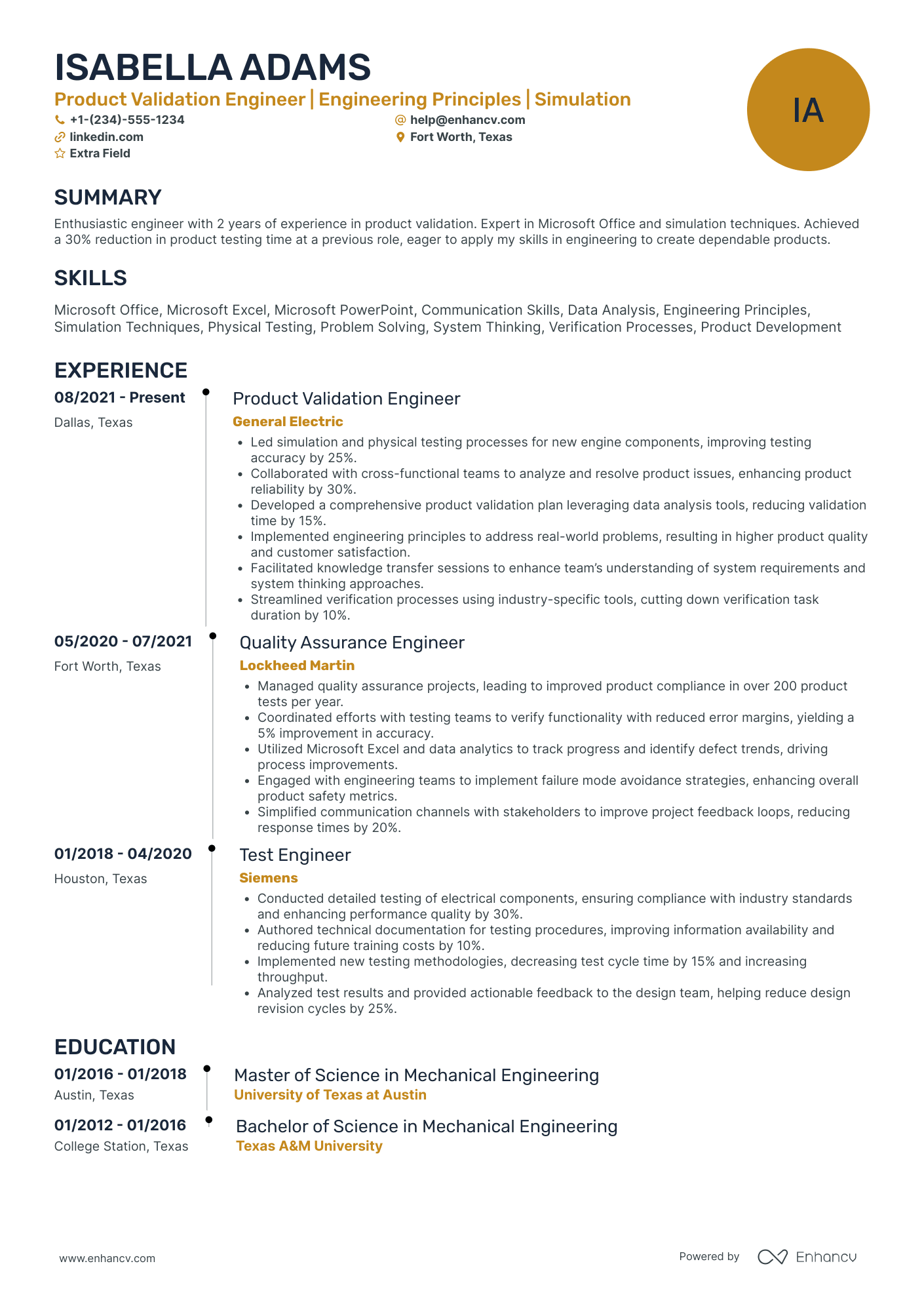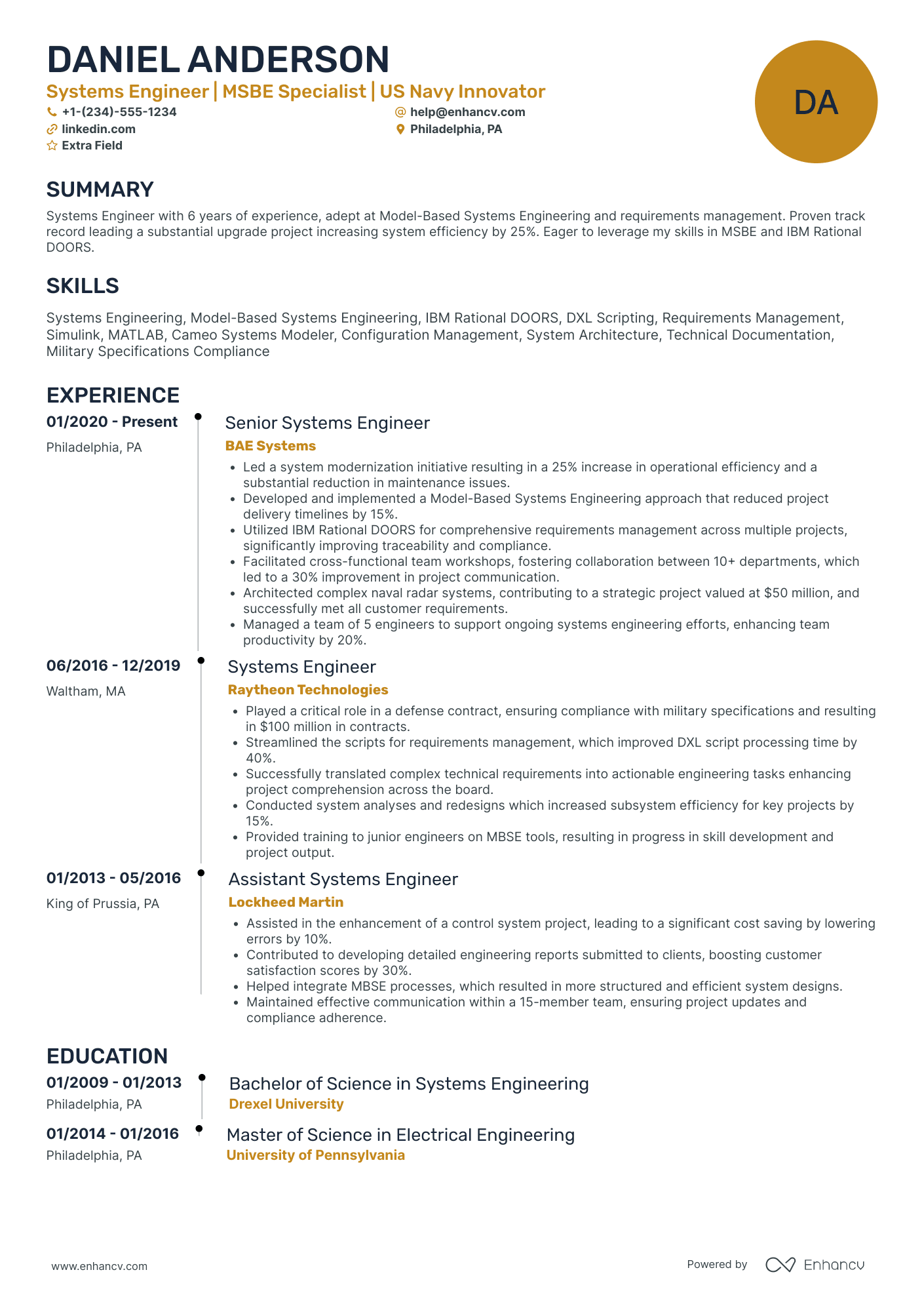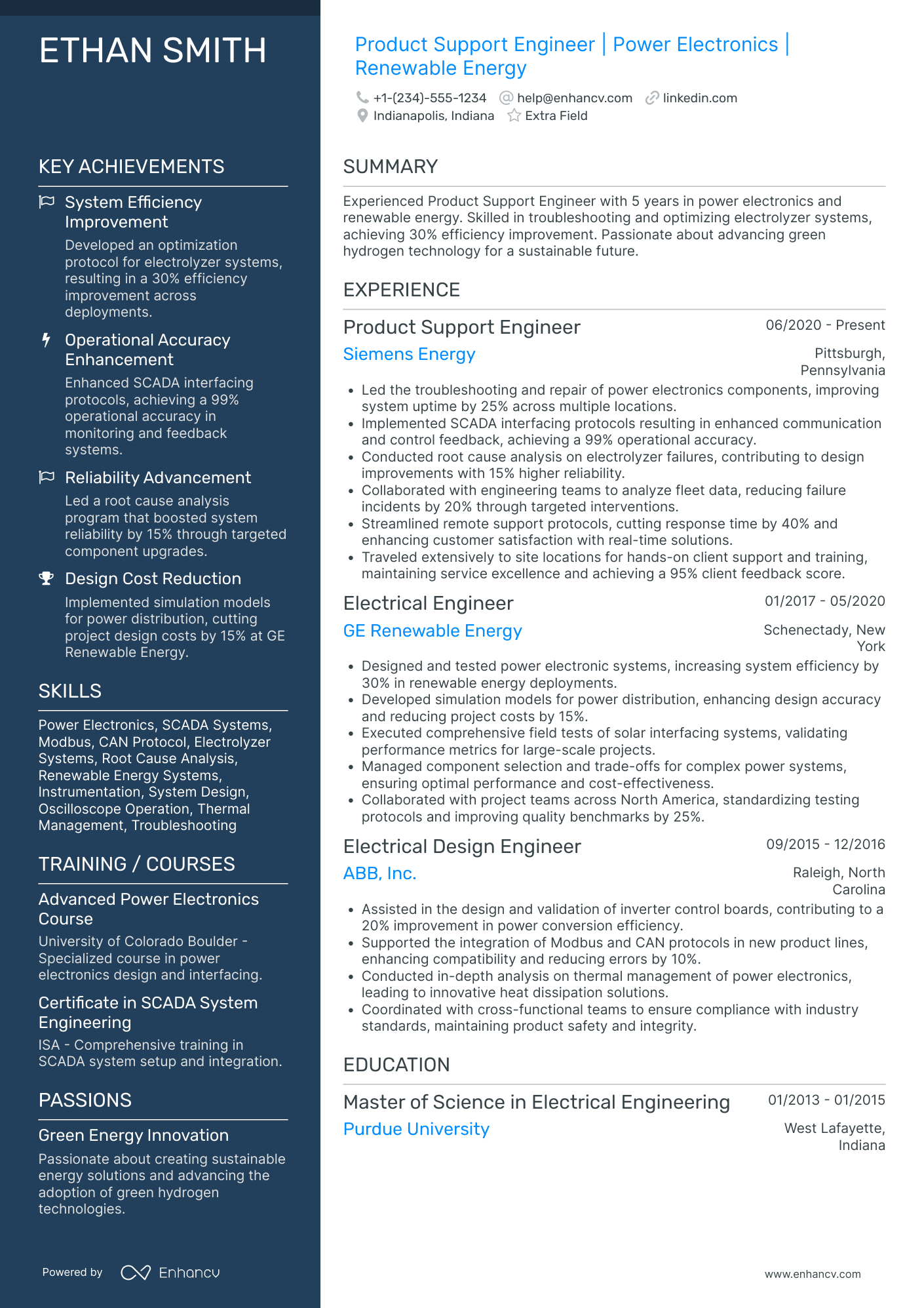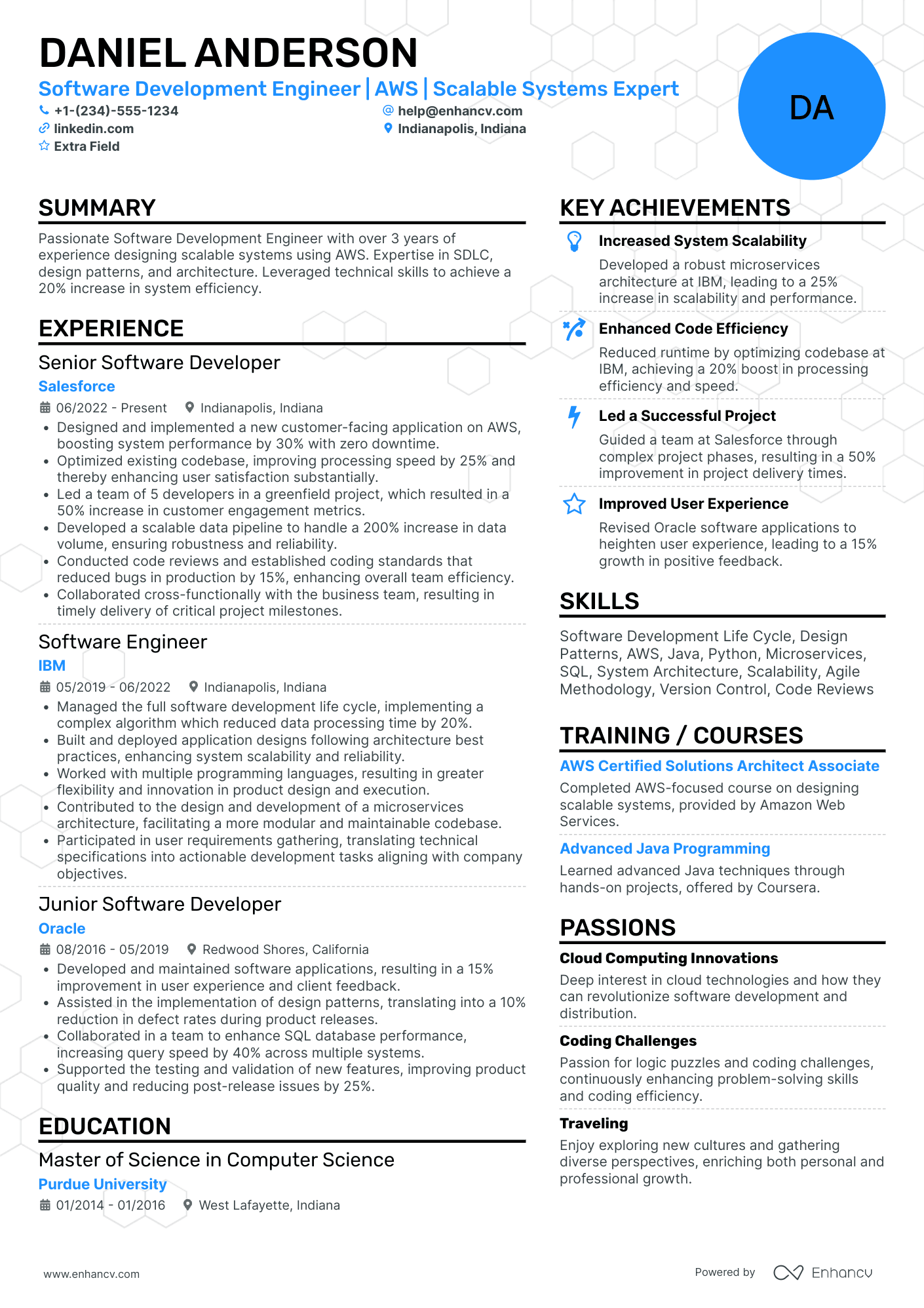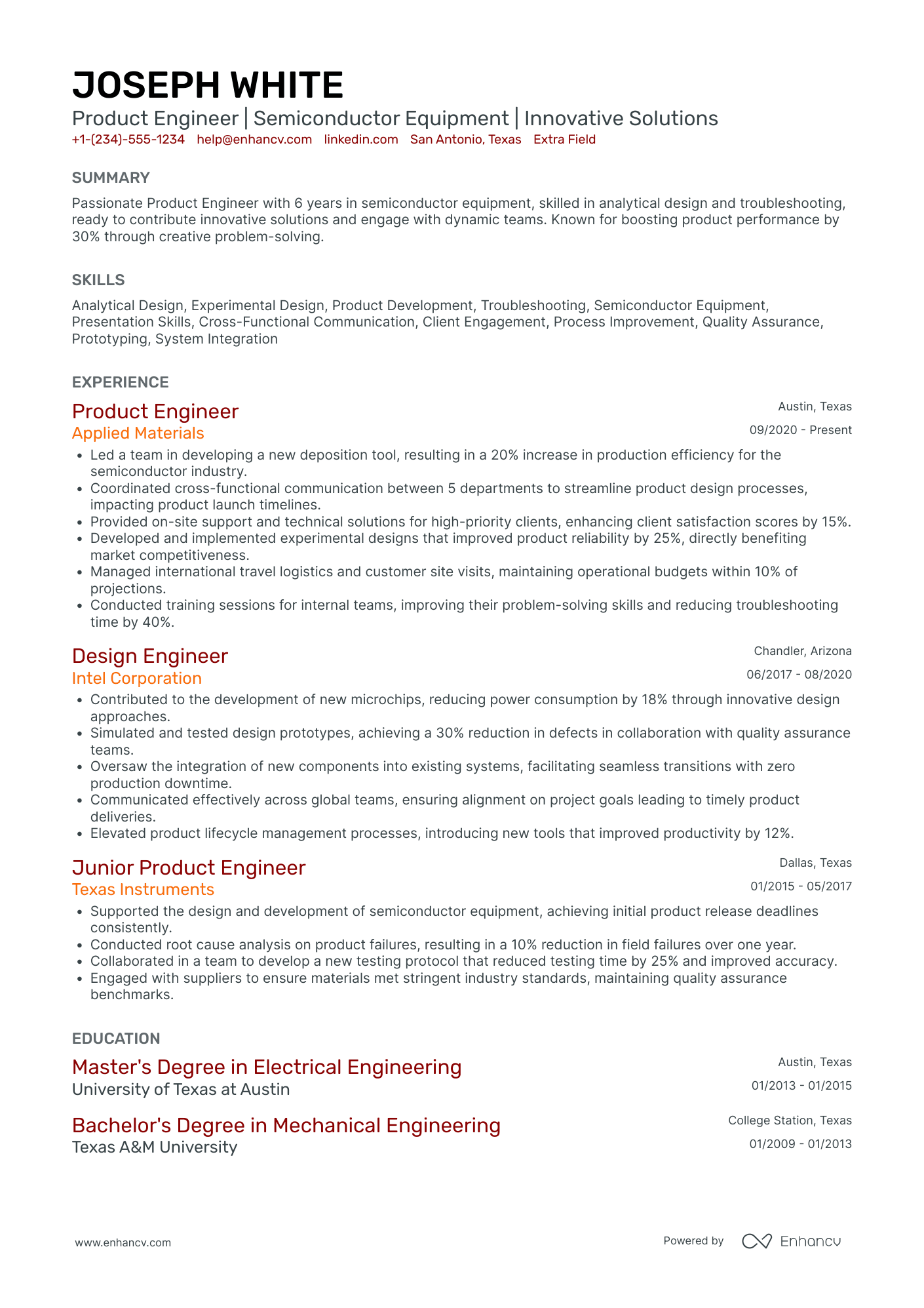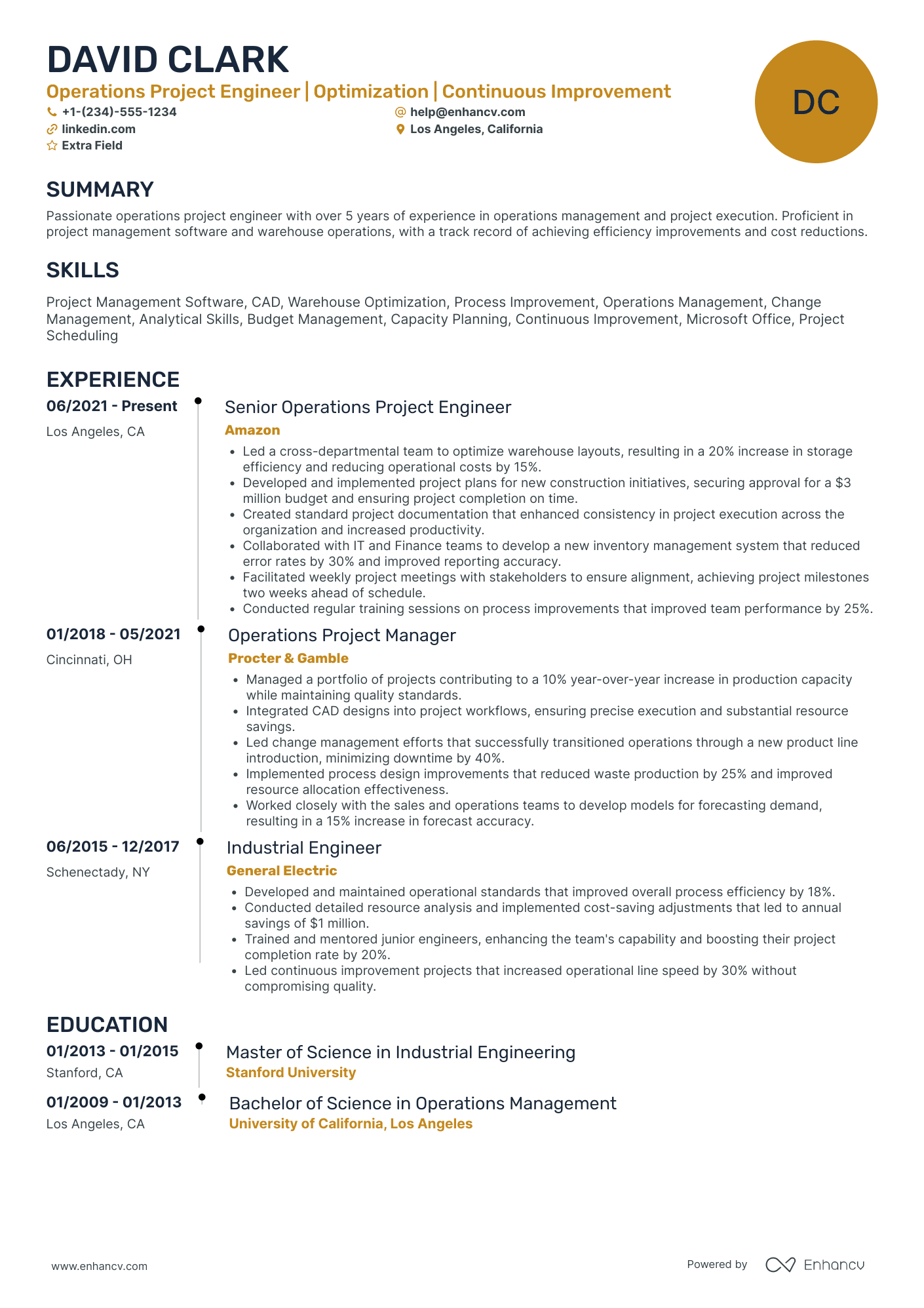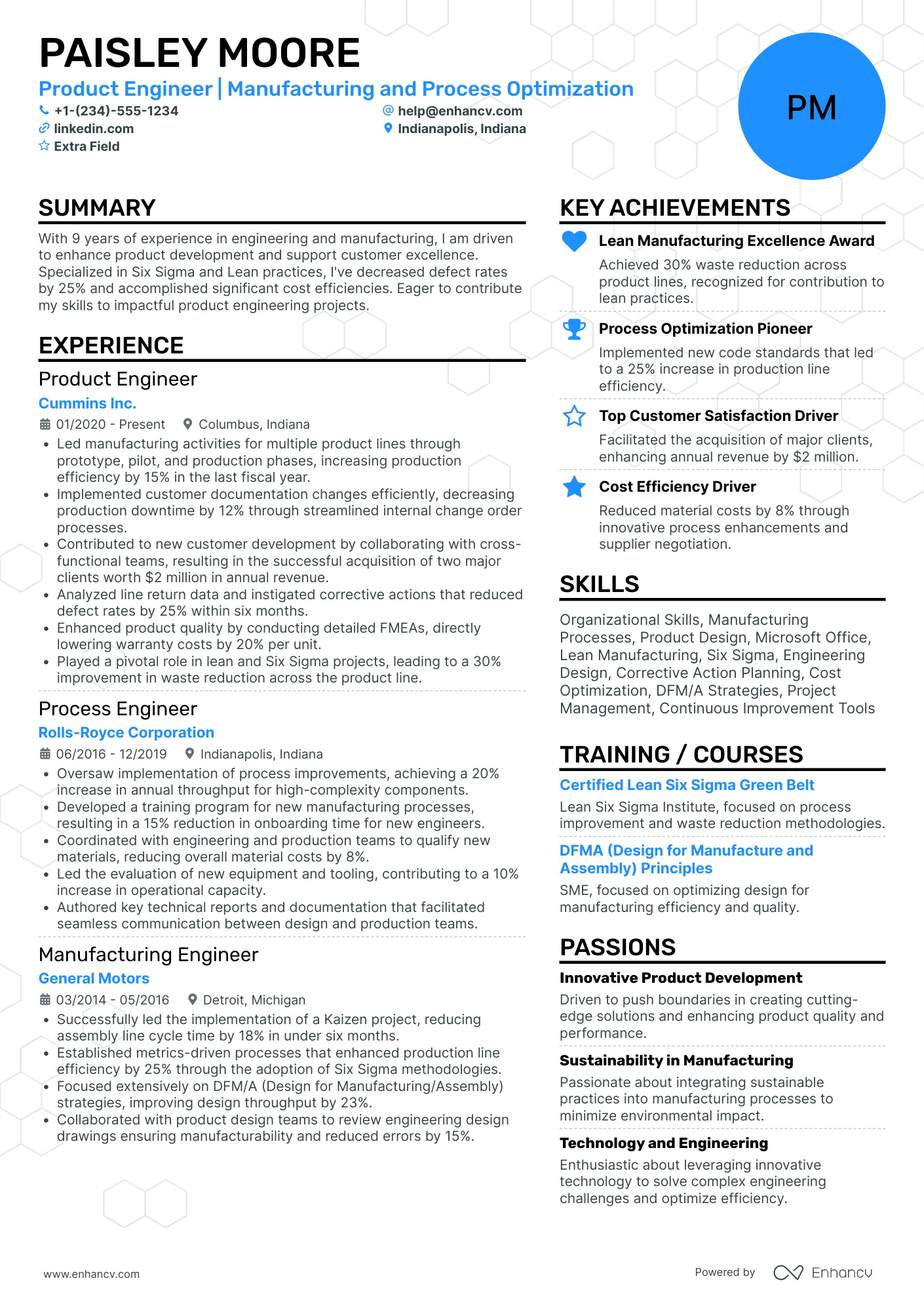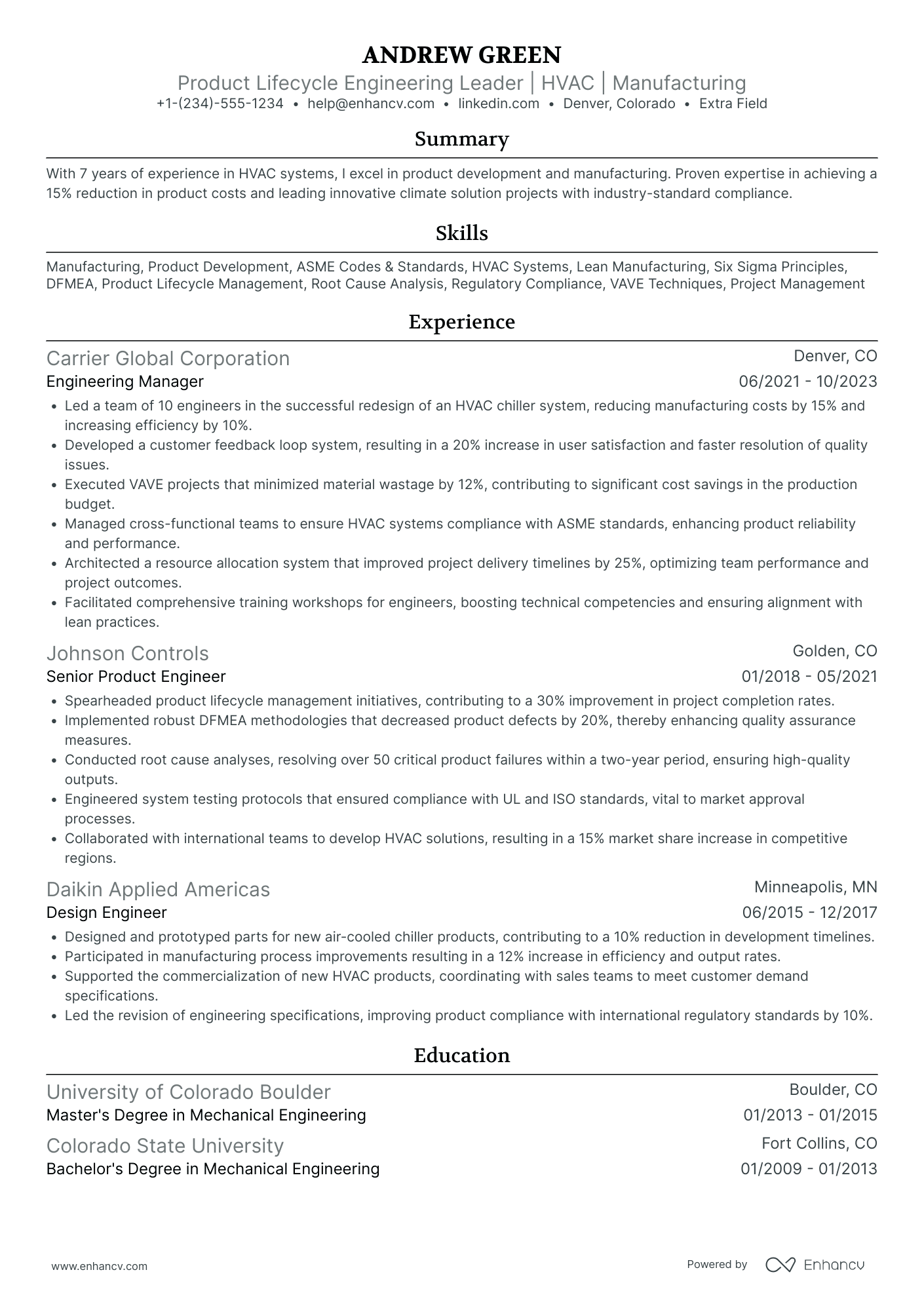If I asked you what a certified parent would look like, what would be your answer?
I bet a product engineer wouldn’t be at the top of your list.
Just think about it.
Being one is a lot like being a parent - your product idea is your child and you need to make sure it grows right.
And while your brainchild is maturing, you’re also accountable for:
- Its performance and behavior
- Its proper development
- Budget management
- Maintenance and testing
- Everything being done on time
It's like making sure your kid does their chores and behaves well at school. Otherwise PTA meetings would be a nightmare.
Since you’re involved in every aspect of product development, you’re bound to have a variety of skills.
This begs the question, if you had to write a one-page resume, would you be able to fit everything on it?
If your answer is yes, let us know if we missed anything in our article.
If your answer is no, then strap yourself and keep on reading.
What can our product engineer resume guide help you with
- Being succinct and focused when talking about your knowledge and work experience
- Leveraging and balancing out your technical and core skills on your resume
- Structuring your resume in a way it will resonate with hiring managers
- Describing transferable skills and supporting them with evidence
- Making your resume reflect your work style without having to rely solely on the cover letter
How to build a product engineer resume from scratch
When it comes to resume writing, many product engineers tend to get too technical. And it's a very common trap to fall into.
In most cases, hiring managers do have some knowledge about the type of skill set they’re searching for.
Even if they don’t, they are paired with an expert during the interview process to navigate the tech bits.
But before you get the interview, you must convince recruiters that you’re the right fit for the company. Not only in terms of culture, but also the way you perform your work.
Yes, being expert in your field is a must. But you need to be able to talk about your expertise without losing your audience.
How?
By speaking the language hiring managers understand best - results.
Much like end users, recruiters are concerned with what they will get out of hiring you.
How can you help the company achieve its goals?
This brings us to resume framing and layout. Depending on your level of expertise, you have three options:
Generally, hiring managers prefer the first layout.
Why?
Because it’s easier to skim through. If you have plenty of experience, this is the way to go.
Make sure you don’t go back more than a decade. List all the different projects you’ve been involved in.
Also, if you’ve held various positions, show your career development. Let recruiters know the scope of your past responsibilities.
If you don’t have much experience, then consider the functional resume format. It focuses more on your abilities, rather than actual work experience.
In case you want to include a mix of past positions and side projects, the hybrid resume layout is your best option.
This one is also good, if you need to explain gaps in your work history.
Important sections to have on your product engineer resume:
- Header section to detail basic contact information and link to your portfolio;
- Resume objective or summary to highlight your best accomplishments;
- Experience section to display the scope of your responsibilities;
- Skills portion to flaunt anything you haven’t had the chance to discuss in the previous section;
- Education and Certificates section to support your credentials.
All you need to do is pick the resume format most suitable for your circumstances.
Seems simple, right?
Well, yes and no. You have the frame, now it’s time to think about the filling.
How?
Here is what you need to take into account:
What are recruiters actually looking for in a perfect candidate?
- Do you have a general roadmap when you start working on a project?
- How often do you revise your roadmap?
- When do you consider a product or a feature ready to deliver?
- Where do you look for answers when building a new feature? What portion of this is user research?
- What is your criteria for a complete product/feature? Do you test it and how?
- How do you define a product issue? How do you tackle it?
- How do you choose between different solutions to a product problem?
- How do you prioritize your tasks?
- How is work divided between various departments? Who takes responsibility when something unexpected happens?
- How well do you communicate with the different departments involved in your projects?
- What do you consider when it comes to project funding and budgeting?
Sounds like a lot. But once you have these down, you’ll be better prepared for the interview, too.
Let’s look at each section individually to see these tips in action.
What makes a great product engineer resume pop: the header
Why is the header so important? Because it can hint at a few of your character traits outright.
Meticulousness, precision, product sense, etc.
It’s a way of showing how you perceive yourself as a professional. And how you think about the work you do.
In this guide, we’ll take Dominic’s resume draft as an example.
2 product engineer Resume Header Examples
Here is how he tackled his first attempt:
There’s nothing to impress hiring managers. Also, attention to detail is lacking.
Dominic’s job title looks generic. It doesn’t specify which industry he operates in.
He can be reached only via email. And on top of that, there is no reference to a portfolio or his LinkedIn account.
Why do these matter?
Hiring managers must confirm that your:
- Work style matches the job requirements
- Projects are successful and you are proud to share your work
- Social media presence is professional
Making a few adjustments along the way and voilà!
Now you know that if you ever need a software expert, based in Chicago, Dominic is your man.
And if you’re curious about his work, Dominic’s given you the opportunity to check it out.
How to flaunt your achievements on your resume: the summary
We realize it’s hard to brag about your accomplishments sometimes. But this is the part of the resume where you must shine.
Why?
Because if you don’t make a statement here, recruiters won’t think twice about discarding your resume.
If you’re just graduating, worry not - you can rely on a well-written resume objective.
Instead of listing prizes, talk about:
- Your strengths and skill set
- How a potential employer will benefit from your addition to their company
- Long-term career goals and development path
Limit your objective to no more than three or four sentences. Make it impactful, concise and to the point.
Optimize your resume summary and objective for ATS
Drop your resume here or choose a file.
PDF & DOCX only. Max 2MB file size.
2 product engineer Resume Summary Examples
Going back to Dominic’s first draft, take a look at the following sample:
It seems he’s proud of holding a Director’s position. Yet, he has nothing to show for it:
- No explanation of how he was involved with the design of the product
- No evidence of how or where he has acquired his skills
- No mention of any awards or prizes won over the course of his work
Maybe that’s the reason Dominic doesn’t specify exactly how many years of work experience he has.
Consider the sound of the revised version:
Sure, he’s not a Director in this one. But he has more than a decade of working experience.
Plus, this summary lists the particular technologies Dominic is familiar with. As well as all the industries he operates within.
What’s more, his team has won niche awards.
This resume will definitely leave a lasting impression on hiring managers.
How to present a well-rounded story in your product engineer resume
Next on the agenda is the experience section!
Many dread it because:
- They don’t have the necessary experience yet
- This is one of the two places where you risk falling into the aforementioned trap. (The first one being the summary.)
One way of thinking about this is to imagine you’re explaining your work to a 5-year-old.
Why?
Because in your day-to-day job you'll be in touch with various company departments. You must be able to communicate your wants and needs.
Also, this displays your presentation skills.
Another point to take into account: company owners and recruiters care about results. If you can prove your usefulness and exhibit a wide range of abilities, you’re right on track.
Don’t shy away from listing achievements from holding other positions. After all, product engineering involves much more than the concept and design part.
Product engineer resume experience examples
Let’s look at Dominic’s initial resume draft:
- •Implemented a customer chat support feature to one of the company's leading CRM products.
- •Reduced client complaints.
- •Conducted market analysis.
The company description and his job title sound promising. But when you get to the bullet point, the entry fizzles out.
Either Dominic doesn’t take his job seriously or he doesn’t know how to write an experience entry.
After confirming he wasn’t sure how to explain his project contributions, we helped him out:
- •Increased customer retention by 81% in the span of a year as a result of the creation of a thorough market analysis guides for the niche.
- •Successfully coached three developer teams, which were later awarded the Online Support Services Award for 2020 and 2021.
- •Reduced client complaints by 95% after reworking and simplifying the customer feedback process.
- •Onboarded 10 new clients from the Greater Chicago area alone, following the implementation of the customer chat support feature to one of the company's leading CRM products.
Notice the slight change in the company description. There are two reasons for this:
- It’s a good way to introduce your main line of work
- It shows you identify with the mission statement of your previous employer
- It allows you to expand on your achievements in the bullet points
More importantly, you can talk business and numbers without overcrowding your resume.
If you need more tips, check out our article on how to describe your experience. Even if you don’t have much.
How to decide which talents to include in the skills section
Given that product engineering requires quite a versatile skill set, this is not an easy task.
But there is a method to this madness.
All you need to remember is to create a nice balance between soft and hard skills. Because as Fernanda Lopes puts it:
"This is not an easy career, and sometimes, you cannot relate the equations that you may learn in college to the real world. Regardless of all the strong technical skills we need, at the end of the day, we work with and for people, so be respectful of everybody who crosses your way. You can learn from everybody everywhere."
ernanda Lopes, Principal Chemical Engineer at Honeywell UOP
When you think about it, the same goes for the resume and interview process afterwards. You must appeal to both the hiring managers and the team you’ll be working with.
And when you get the job - your products need to resonate with the end users.
Let’s begin with the easiest part.
The trendiest tech skills to add to your resume
These depend largely on the type of product engineering you do.
If you’re operating in the medical niche, you may be asked if you have a chemical engineering background.
By contrast, if you’re designing the next social media platform - web development should be at the top of your list.
With that in mind, here are some of the key technical abilities currently in demand.
Top hard skills to have on your product engineer resume:
- Project management
- Budgeting and accounting
- Cost estimation
- Financial modeling
- MDBMS
- Essbase
- Quickbooks
- Product development
- Finite element analysis
- Test data collection
- Statistical data analysis
- Test summary reports
- Kaizen
- Fit and function tests
- Language skills
- KPI knowledge
- Blueprint reading
- Root Cause Corrective Actions (Kanban)
- Technical writing
- Design
- Testing
- Lean manufacturing
- Python
- Schematic development
- Construction expertise
- Data warehousing
- Production design
- Process development
- JS
- jQuery
- HTML
- Ajax
- Backbone
- UI/UX
- React
- Solidworks
- SolidEdge
- MatLab
- UL
- CAM software
- CAD systems
- Labview
- FMEA
- DFMEA
- CNC Programming
- Quality engineering
- Mainframe Assembler
- Mainframe Software
- My SQL
- Oracle
- DBD
- MongoDB
How to associate results to soft skills on your resume
Many product engineers find it hard to describe core skills. And that’s understandable - most of the things you learn in college don’t touch on the business side of things.
But, as you may have guessed, there is a way out.
The key is to always link your skills to verifiable results. Recruiters need to confirm that your talents will reap the wanted benefits.
Need examples?
Have a look at the following descriptions:
As you know, for every action in nature there is an equal and opposite reaction. This applies to human interaction, too.
We asked Dominic to choose three of his strongest soft skills.
Easy enough, right? Right.
But when we asked him to provide proof, he was stuck.
After a short discussion, Dominic floored us. He shared that his former bosses were surprised at how smoothly winter sales went.
Dominic didn’t consider this much of an achievement. But providing uninterrupted services means customer satisfaction. And this means more profit for the company.
Think about all the different ways your non-tech abilities have helped others. If you’re not sure about your strongest soft skills:
- Ask friends and colleagues
- Think about situations where your actions have had a direct result and jot them down
- Review our list and note down all the skills which correspond to the job ad and apply to you
Essential social skills to have on your product engineer resume:
- Financial reporting
- Forecasting
- Knowledge of safety regulations
- Motivation
- Working under pressure
- Communication
- Organizational skills
- Time management skills
- Ability to learn fast
- Adaptability
- Customer support
- Collaboration skills
- Conflict resolution
- Inquisitiveness
- Quality assurance policies
- Problem identification and solution
- Attention to detail
- Analytical abilities
- Conceptualizing skills
- Leadership skills
- Resource planning
- Concept development
- Market analysis
- Product sense
- Strategic thinking
- User needs comprehension
- Competition analysis
- Explanation skills
How important is the education section on your resume?
Naturally, if you’re doing product engineering, your skills should be impeccable.
Depending on your business niche, you may be asked to have specific engineering know-how. Diplomas, too. Some of these include:
- BS Degree in Engineering
- BS Mechanical Engineering
- BS Automotive Engineering
- BS Aviation Engineering
- BS Engineering
- BS Electrical engineering
- BS Design Engineering
- BS in Aeronautics
- BS in Industrial Engineering
- BS Computer Software Systems
- MBA Management
- MA Business Administration
If you’ve just graduated, place your credentials near the top of your resume. Don’t forget to list relevant classes or extra-curricular activities you’ve taken.
What about the certificates? what stands out to recruiters
These, too, are tied to your industry.
It wouldn’t make sense to be a CFA Charterholder, if you’re involved with mechanical engineering. Unless you’re also engaged with the financial side of your project as well.
As such, there are a variety of certificates you can attach to your resume:
Top 30 product engineer Certificates for Your Resume:
- Certified SolidWorks Associate Mechanical Design FEA
- CFA Charterholder
- CFA Level II Candidate
- Chartered Financial Analyst (CFA)
- CPA
- SAS Certified Base Programmer for SAS 9
- Series 6 License
- Series 66 License
- Six Sigma Green Belt
- CAD and Digital Manufacturing
- Software Engineering Master Certification (SEMC)
- Software Engineering Management Associate Engineer
- Engineer In Training Certification (EIT)
- Certified Manufacturing Engineer (CMfgE)
- Certified Energy Manager (CEM)
- Digital Manufacturing and Design Technology Certification
- Certified Quality Engineer (CQE)
- Certified Systems Engineering Professional (CSEP)
- Professional Engineer (PE) Mechanical Exam
- Air Quality Permitting and Enforcement Exam
- Master Certified Electronics Technician (CETma)
- EPA Operators Safety Certification (EPA)
- Project Management Professional (PMP)
- Contractors State License Board (CSLB)
- Traffic Engineering License Exam
- Assistive Design Certificate
- Certified Maintenance Manager (CMM)
- Certified Quality Engineer (CQE)
- Certified HVAC Designer (CHD)
- Precision Sheet Metal Operator Certification
Bear in mind to keep your certificates up to date. Always check the validity of your diplomas before listing them on your resume.
Is there anything else you can add to your product engineer resume?
Definitely!
There are so many ways you can shape your story. Carefully review the job requirements stated in the ad. Check if the recruiters are searching for specific skills.
Some of the other sections you can attach include:
- Programming languages
- Foreign languages
- Hobbies and interests
- Projects
- Volunteer work
- Highlights
- References
- Resume awards
- Publications
Key takeaways: building your product engineer resume from the ground up
- Avoid getting too technical about your work on your resume
- Reference the job requirements, be concise and stay to the point
- Create a balance between your soft and hard skills
- Show all the different benefits your skills can bring
- Make sure your diplomas and certifications are up to date
Product Engineer resume examples
By Experience
By Role
